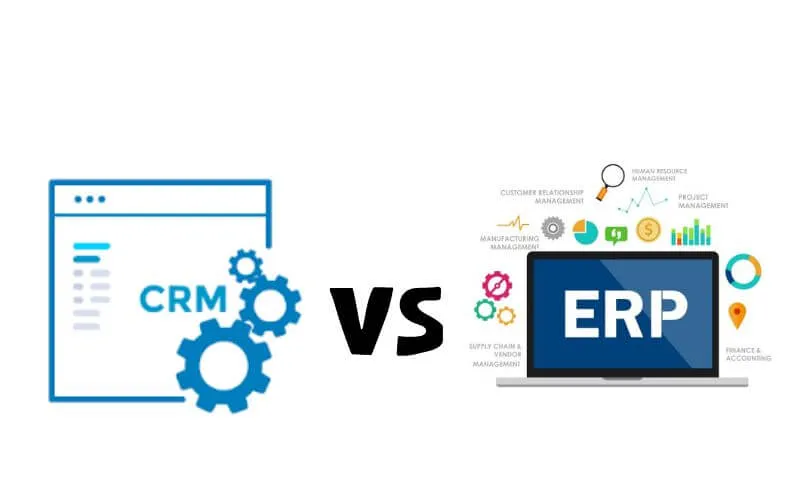What is ERP and CRM Software When it comes to business management, the terms CRM and ERP come up frequently. And for good reason. These two types of solutions have the same objective ofoptimizing the company’s actions and activities.
However, they constitute two different approaches and must therefore be distinguished. What is the difference between CRM software and ERP? We explain everything to you.
Table of Contents
Definition of ERP and CRM
To begin, it would be good to lift the veil on the meaning of these two acronyms.
So we have :
ERP:Enterprise Resource Planningor Enterprise resource planning. This type of software therefore aims toorganize,planandmanagedifferent departments of a company.
CRM:Customer Relationship Management. That is to say: customer relationship management. This tool is intended for sales and marketing departments to effectivelyprospectandbuild loyalty.
CRM Software: sales and prospecting tools
This type of solution makes it possible to centralize essential data for marketing teams. They can thus optimize their prospecting and customer loyalty. Among the main objectives of CRM tools are:
- Automation of sales processes. Registration of new customers, updating of automatic messages such as welcome, thank you, etc.
- Collection of all customer information
- Creation of databasesfor marketing purposes
- Follow-up of customers, salesand facilitation ofremindersandloyalty.
CRM software allows you to have acentralized view of the marketing actionsin progress, but also of the company’s customers. This makes it possible to carry out specific campaigns depending, for example, on the geographical area, the type of product purchased, etc.
The sales strategy can be adapted more easily according to the behavior of prospects and customers.
Therefore, we understand that CRM is a customer-oriented and business relationship management tool. Its main objective isto increase sales.
ERP: centralizing the operation of the company
Where the CRM is confined to commercial services, the ERP aims toensure a link between all the departmentsof the company.
The idea is tooptimize productivityand reduce costs by accessing key indicators (KPIs). The interconnection is then made between the sales department, the accounting department or even that in charge of production or human resources.
The aim is therefore for each department to be able to include itself in a global project, without ignoring the impact of its actions on the neighboring department. A work in symbiosis, for more efficiency.
Each departmentoperates independentlybut with a clear view of how its actions act on the heart of the business.
Solutions for all businesses?
If the CRM can be usefulwhatever the sizeof your structure, for obvious reasons of optimization of the marketing actions, the ERP can raise questions.
Indeed, an ERP or PGI (integrated management software package), is often associated with the idea ofa large company. And this is not without reason.
First, the cost. ERP software isoften expensive. If your structure is young, the investment may not be profitable. Also, the size of your business should be taken into consideration. It is quite easy to imagine that a company with few employees can communicate directly, without going through an ERP.
Are ERP and CRM Compatible?
Finally, is it one or the other? In reality, it is quite possible, even advisable, for large-scale structures, to use both tools. Many software are alsocompatible with each other.
Used with all their potential, these solutions allow an optimization of actions that can only be profitable. With an ERP, your resources are optimized since the tool allows you tocontinuously improveinternal processes.
On the other side, the CRM helps you to better direct your marketing campaigns, to maintain more easily the link with prospects and customers. This is the breeding ground for your turnover .
It only remains for you to study the relevance of these two tools according to your situation. But now you will know the difference. On you have the possibility of managing your “opportunities”, a function which is similar to a small integrated CRM.


